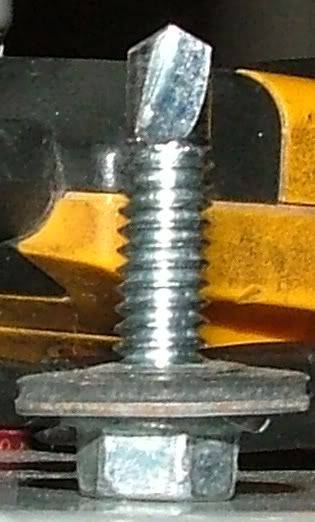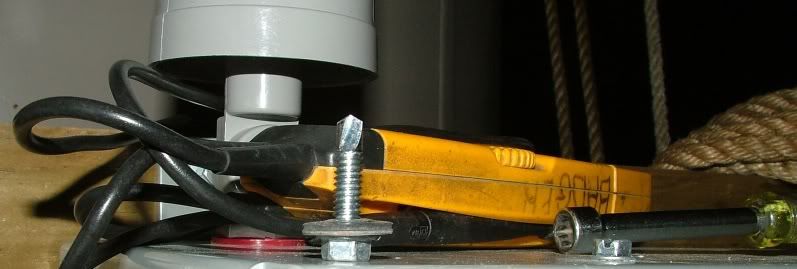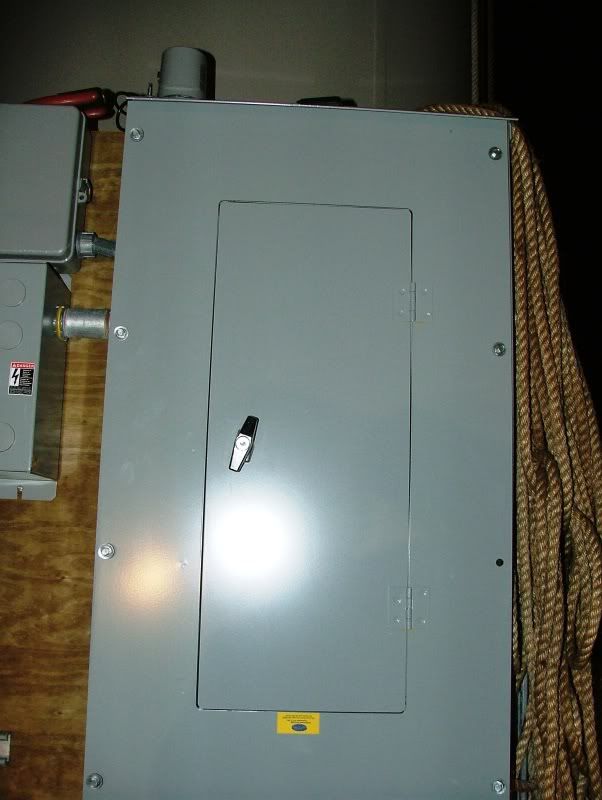archibald tuttle
Member
reviving in a way, the every popular (16 pages worth) thread from 2010 on using sheet metal screws for panel covers.
I note the winner of the poll on that thread was any short machine screw that fits reasonably (or something to that effect).
One issue I have after reading the comments is that not everyone shares the same definition of machine screw as one of the posts for instance suggest any machine screw as long as you cut off the point. last I looked, machine screws don't have points. that is sheet metal screws.
The majority of panels, in my experience, are designed for a machine screw thread but ship with provided screws are generally similar to that category of machine screws sometimes referred to as thread cutting. these are not tek screws, that self drill and then use a sheet metal style thread to secure in their own drilled hole. these are fine threaded machine screws that taper slightly and may have perpendicular notches in their early threads that provide a slightly 'tap' like crossection.
other panels have machine threads without any real thread cutting device and those boxes have probably been pretapped. They sometimes have a narrower unthreaded lead portion to help locate.
still others use sheet metal style threads with a preblunted tip.
and once accounting for those variations I think I've seen these in thicknesses ranging from 8 - 12 screw or machine sizes.
all of this means there is no standard panel screw, but I'm wondering why it seems impossible to find a selection of various reasonable facsimiles. I would certainly pay handsomely to have something like that because, as another poster in the now famous 2010 thread pointed out, the screws, or some significant portion of them are always lost by the first 3167 people to work on the box.
I get to wonder why I'm always the 3168th person in the box . . . but I have to admit I've lost my share. you always think you are putting them in a safe place -- and I'm sure all these screws are still safe because nobody has ever found them to do them any harm.
I noticed that house inspectors are now in the business of looking for obviously wrong screws on occasion.
in response to those of us who might have voted in the pole for the "why would I put the cover on" option -- which always goes for my own home -- maybe even a sheet metal screw carefully applied is a better option than no cover. obviously you need to pay attention to how the wires are arrayed around the holes and snubbing the end shouldn't be much problem given the availability of highly leveraged cutters in some proximity to the work. Yes you still have a sharper side thread, but that is true of some of the manufacturer supplied screws and care need to be taken regarding the positioning of wires, especially heavy ones near these holes even when using the standard provided screws if plenty of threads on here are to be believed, e.g.
so I'm still looking for an assortment of relevant possibilities because many of the thread types can be gotten but you aren't as likely to get the nice little taper that helps get it in the hole and, as has also been pointed out, it is much harder to come by the head style commonly used - referred to as truss head in the fastener trade.
hopefully I'm positively reigniting a debate here, because this is a constant pain in the butt (hope that satisfies using decent language, i respect the proprietor not wanting this discourse to descend into the gutter) from my perspective.
brian
I note the winner of the poll on that thread was any short machine screw that fits reasonably (or something to that effect).
One issue I have after reading the comments is that not everyone shares the same definition of machine screw as one of the posts for instance suggest any machine screw as long as you cut off the point. last I looked, machine screws don't have points. that is sheet metal screws.
The majority of panels, in my experience, are designed for a machine screw thread but ship with provided screws are generally similar to that category of machine screws sometimes referred to as thread cutting. these are not tek screws, that self drill and then use a sheet metal style thread to secure in their own drilled hole. these are fine threaded machine screws that taper slightly and may have perpendicular notches in their early threads that provide a slightly 'tap' like crossection.
other panels have machine threads without any real thread cutting device and those boxes have probably been pretapped. They sometimes have a narrower unthreaded lead portion to help locate.
still others use sheet metal style threads with a preblunted tip.
and once accounting for those variations I think I've seen these in thicknesses ranging from 8 - 12 screw or machine sizes.
all of this means there is no standard panel screw, but I'm wondering why it seems impossible to find a selection of various reasonable facsimiles. I would certainly pay handsomely to have something like that because, as another poster in the now famous 2010 thread pointed out, the screws, or some significant portion of them are always lost by the first 3167 people to work on the box.
I get to wonder why I'm always the 3168th person in the box . . . but I have to admit I've lost my share. you always think you are putting them in a safe place -- and I'm sure all these screws are still safe because nobody has ever found them to do them any harm.
I noticed that house inspectors are now in the business of looking for obviously wrong screws on occasion.
in response to those of us who might have voted in the pole for the "why would I put the cover on" option -- which always goes for my own home -- maybe even a sheet metal screw carefully applied is a better option than no cover. obviously you need to pay attention to how the wires are arrayed around the holes and snubbing the end shouldn't be much problem given the availability of highly leveraged cutters in some proximity to the work. Yes you still have a sharper side thread, but that is true of some of the manufacturer supplied screws and care need to be taken regarding the positioning of wires, especially heavy ones near these holes even when using the standard provided screws if plenty of threads on here are to be believed, e.g.
so I'm still looking for an assortment of relevant possibilities because many of the thread types can be gotten but you aren't as likely to get the nice little taper that helps get it in the hole and, as has also been pointed out, it is much harder to come by the head style commonly used - referred to as truss head in the fastener trade.
hopefully I'm positively reigniting a debate here, because this is a constant pain in the butt (hope that satisfies using decent language, i respect the proprietor not wanting this discourse to descend into the gutter) from my perspective.
brian





